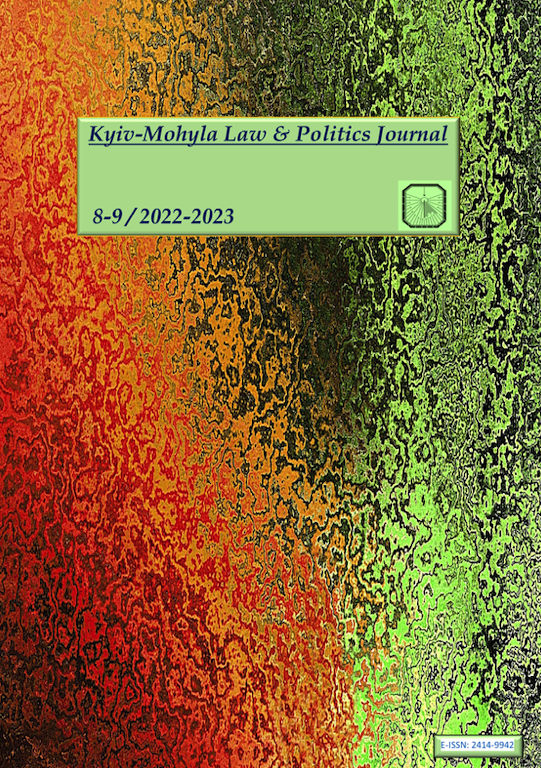Spyware in intelligence espionage operations as a threat to the state
DOI:
https://doi.org/10.18523/kmlpj303225.2023-8-9.161-171Keywords:
Spyware, Intelligence espionage operations, Cyber attacks, MilitaryAbstract
The development of globalization has changed the pattern of war from conventional military power with trained soldiers and sophisticated weaponry to non-military state power through cultural, economic, political, and technological aspects. Warfare now dominantly utilizes technological sophistication or cyber warfare, posing a threat to national security, sovereignty, and resilience in the virtual world. This article uses a qualitative approach that refers to the meaning, concept, definition, characteristics, metaphor, symbol, and description of a qualitative study, conducted through examining various social arrangements and groups or individuals in a social setting. The data collection technique used here is only a literature review or a descriptive review of previous research sources and other secondary data. In terms of Cyber Espionage issues, updating the law can be a step towards providing a legal basis for law enforcement against Cyber Espionage perpetrators as a legal breakthrough to ensnare the perpetrators. Cyber intelligence's role as a "new" form in the governance of national intelligence can become clearer and avoid potential issues. Attention to these issues should be accompanied by solutions in preparing competent human resources, infrastructure, funds, and technology to make cyber intelligence an asset for national and state security.
References
- Adrian, W. (2022). POTENSI SPIONASE TERHADAP PENGGUNAAN WHATSAPP DALAM BIDANG PERTAHANAN INDONESIA. Peperangan Asimetris (PA), 8(2), 44. https://doi.org/10.33172/pa.v8i2.1454
- Anggoro Yulianto. (2021). Cybersecurity Policy and Its Implementation in Indonesia. LAW RESEARCH REVIEW QUARTERLY, 7(1), 69–82. https://doi.org/https://doi.org/10.15294/lrrq.v7i1.43191
- Ardiyanti, H. (1986). Cyber-Security Dan Tantangan Pengembangannya Di Indonesia. 95–110.
- Atmadja, N. P. (2017). Dukungan Indonesia Terhadap Resolusi Anti Spionase Perserikatan Bangsa-Bangsa. EJournal Ilmu Hubungan Internasional, 5(3), 933–948. https://suntzusaid.com
- Chotimah, H. C. (2019). Tata Kelola Keamanan Siber dan Diplomasi Siber Indonesia di Bawah Kelembagaan Badan Siber dan Sandi Negara [Cyber Security Governance and Indonesian Cyber Diplomacy by National Cyber and Encryption Agency]. Jurnal Politica Dinamika Masalah Politik Dalam Negeri Dan Hubungan Internasional, 10(2), 113–128. https://doi.org/10.22212/jp.v10i2.1447
- Muhamad Helmi Kaffah Nur Iman Andrea Abdul Rahman Azzqy. (2017). Aktifitas Spionase Republik Rakyat Tiongkok ke Amerika Serikat ( Cyber Spionase. Putri, A. W. O. K., Aditya, A. R. M., Musthofa, D. L., & Widodo, P. (2022). Serangan Hacking Tools sebagai Ancaman Siber dalam Sistem Pertahanan Negara (Studi Kasus: Predator). Global Political Studies Journal, 6(1), 35–46. https://doi.org/10.34010/gpsjournal.v6i1.6698
- Rahmawati, I. (2017). the Analysis Of cyber Crime Threat Risk Management To Increase Cyber Defense. Jurnal Pertahanan & Bela Negara, 7(2), 51–66. https://doi.org/10.33172/jpbh.v7i2.193 Ramadhan, I. (2017). Peran Institusi Internasional Dalam. Populis, 2(4), 495–508.
Downloads
Published
How to Cite
Issue
Section
License
Copyright (c) 2023 Deky Rosdiana

This work is licensed under a Creative Commons Attribution 4.0 International License.
Kyiv-Mohyla Law and Politics Journal provides free access to original research without restriction barriers (i.e. subscription fees, licensing fees etc.).
Unless otherwise indicated, content is licensed under the Creative Commons Attribution 4.0 International (CC BY 4.0) license, which means you are free to:
distribute, remix, tweak, and build upon your work, even commercially
...provided that any use is made with attribution to author(s) and Kyiv-Mohyla Law and Politics Journal.
The copyright in the article or any other submission to Kyiv-Mohyla Law and Politics Journal shall remain with the author(s).
The journal allows the author(s) to hold the copyright without restrictions and will retain publishing rights without restrictions.





